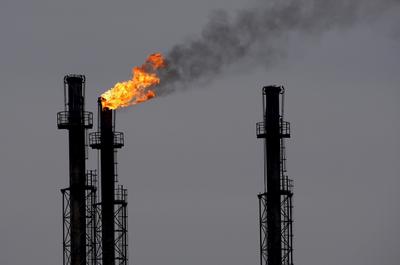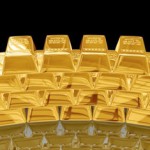Emerging Stocks Advance as Oil Declines While Europe Stoc

Emerging-market stocks rose, extending the biggest quarterly advance since September 2012. Shares in Europe fell, while oil declined as continuing violence in Iraq failed to disrupt supply.
The MSCI Emerging Markets Index (BUSY) climbed 0.4 percent at 7:25 a.m. in New York. The Stoxx Europe 600 Index lost 0.2 percent and Standard & Poor’s 500 Index futures slipped 0.1 percent with the U.S. benchmark poised for the longest stretch of quarterly gains in 16 years. Bulgarian stocks rebounded from a five-month low while Dubai shares extended a bear market. Brent crude declined 0.7 percent. Portugal’s 10-year bond yield rose eight basis points to 3.65 percent. Norway’s krone slid to its weakest level since February against the euro.
A gauge of world equities is heading for a fifth straight monthly advance, the longest streak since 2007, amid signs of economic revival and speculation the U.S. won’t increase interest rates anytime soon. Pending home sales in America probably picked up in May, economists said before a report today. Sectarian fighting in Iraq hasn’t spread to the south, home to more than three-quarters of the nation’s oil production.
“The global outlook is improving,” Ang Kok Heng, chief investment officer of Phillip Capital Management Sdn., which manages $428 million, said by phone in Kuala Lumpur. “Low interest rates will still be the catalyst.”
The MSCI Emerging Markets Index has climbed 5.6 percent this quarter. India’s S&P BSE Sensex index advanced 1.3 percent today, jumping 14 percent this quarter as investor optimism over the new government lured overseas funds. The Shanghai Composite Index rose 0.6 percent, capping the first quarterly gain since the period ended in September. Manufacturing data tomorrow may add to signs the biggest emerging economy is stabilizing after a two-quarter slowdown.
EU Credit
Bulgaria’s Sofix (SOFIX) index jumped 4.2 percent, after dropping 3.3 percent last week. The European Union gave Bulgaria authority to provide 3.3 billion levs ($2.3 billion) in state aid for lenders after authorities there arrested men they said had triggered a run on deposits of the third-largest bank.
Russia’s ruble slipped 0.7 percent and the Micex lost 0.7 percent. Moody’s Investors Service lowered its outlook on the country’s credit to negative, citing geopolitical risk and the outlook for economic growth.
The DFM General Index (DFMGI) tumbled 3.8 percent to, bringing its decline since a May 6 peak to 26 percent, as investors sold shares in companies linked to Dubai’s real-estate industry. Trading was lower in the region as the holy month of Ramadan began this week. Volumes on the Bloomberg GCC 200 Index were 34 percent below the 30-day average, according to data compiled by Bloomberg.
Argentina Payment
Argentina is poised to miss a bond payment today, putting the country on the brink of its second default in 13 years, after a U.S. court blocked the cash from being distributed until the government settles with creditors from the previous debt debacle.
The country has a 30-day grace period after missing the $539 million debt payment to seek an accord with a group of defaulted bondholders led by billionaire Paul Singer’s NML Capital Ltd. and prevent a default on its $28.7 billion of performing global dollar bonds. Both Argentina and NML have said that they’re open to talks.
Eleven of the 19 industry groups in the Stoxx 600 declined today, with trading volumes were 7.6 percent less than the 30-day average, data compiled by Bloomberg show.
Philips Gains
Royal Philips NV climbed 3.2 percent after saying it will merge its LED-component and automotive-lighting units into a 1.4 billion-euro ($1.9 billion) stand-alone company. Vestas Wind Systems A/S rallied 5.6 percent after the world’s biggest wind-turbine maker won orders from Electricite de France SA’s renewable unit.
EasyJet Plc (EZJ) fell 4.2 percent after Bank of America Corp. lowered its rating on Europe’s second-biggest budget airline to the equivalent of a sell.
S&P 500 futures expiring in September were little changed today, with the index heading for a fifth straight monthly gain. It’s advanced 4.7 percent this quarter, a sixth consecutive increase. The gauge has rallied 6.1 percent this year and is 0.1 percent away from the all-time high reached June 20.
Data at 10 a.m. in Washington may show that Americans signed contracts to purchase previously owned homes at a faster pace in May. A report from the National Association of Realtors may show its index of pending home sales climbed 1.2 percent last month after a 0.4 percent increase in April, according to the median projection in a Bloomberg survey of economists.
Iraq Output
Brent dropped to $112.51 a barrel. Corn retreated 1.1 percent, extending the decline this quarter to 12 percent on record U.S. production.
Iraq’s oil minister said last week the nation’s crude exports will accelerate next month, adding to signs that violence in the country’s north isn’t affecting the oil-rich south.
The Norwegian krone slumped after a report showed retail sales fell 0.9 percent last month, exceeding the 0.3 percent decline predicted by analysts in a Bloomberg News survey. The krone weakened 0.6 percent to 8.4100 per euro, after touching 8.4147, the weakest level since Feb. 10. It depreciated 0.5 percent to 6.1606 per dollar.
The yen was little changed at 101.38 per dollar after touching 101.24, the strongest since May 21. Japan’s currency traded at 138.39 per euro.
Erasing Losses
Treasuries rose in the first half of 2014 to almost erase last year’s losses as the U.S. economy contracted while conflict in Iraq and Ukraine fueled demand for the safest securities.
The Bloomberg U.S. Treasury Bond Index climbed 3.2 percent this year through the end of last week, after declining 3.4 percent in 2013.
The benchmark 10-year yield was little changed today at 2.53 percent, according to Bloomberg Bond Trader data. German 10-year bonds were also little changed, with the 10-year yield at 1.25 percent. The rate on similar-maturity Portuguese debt increased 10 basis points to 3.67 percent, reaching the highest since June 5.
The cost of insuring against losses on corporate debt was little changed, with the Market iTraxx Europe index of credit-default swaps on 125 investment-grade companies at 60.5 basis points. The gauge is heading for its third month of declines, down five basis points.
Bonds of companies worldwide generated average gains of 5.4 percent this year, according to Bank of America Merrill Lynch indexes. The $10 trillion gauge includes bonds from American conglomerate General Electric Co. to Brazilian state-run oil producer Petroleo Brasileiro SA and Spanish telephone company Telefonica SA among more than 14,500 issues.
The market is on pace to deliver annual returns exceeding 10 percent, the indexes show. Only two other times, in 2009 and 2012, have returns exceeded 10 percent based on Bank of America Merrill Lynch Global Corporate & High Yield index data going back more than 15 years.
Source: bloomberg




























